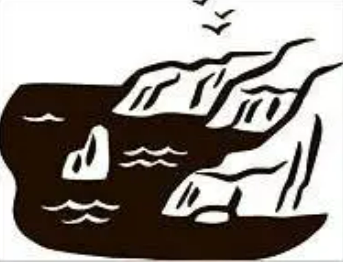By Marion Cook, age 14, The Wheeler School, Providence, R.I.

Bob Hambly
Thirty feet below me and the quivering gray of the diving board, the ocean howled its lonely tune. It whispered and wept like a child lost at the market. It was restless. The wind blew to the same beat at which my heart quickened. It thumped almost audibly despite the shouts of encouragement from strangers, their presence adding a touch of surrealness to my already fraught situation.
I wonder how many people I disappointed that day. I wonder if they remembered my face as I disappeared into the lottery of daily life.
Slowly, my cousins began to run off the sharp angle of the board. I watched some of them fall; there was always this flutter of panic before they all resurfaced, laughing.
I wanted to, too. I wanted to be like them. They said it felt like flying. I remembered thinking that I wanted to know what it felt like to have wings.
The concept of voluntary risk leaked from my brain in the same way water leaks through one’s cupped hands. I think I blame cancer. My mom was diagnosed. Skin cancer. On her head. Not like one surgery and it’s gone type cancer, like fighting for more time type cancer. I was nine years old. Instead of worrying about what to wear to school, I worried about whether or not my mom would wake up in the morning. And how I wouldn’t know until later because a hospital bed cradled her arms and IV bags hugged her, instead of me.
I didn’t really think about my partially broken urge to take on fear because I was too busy with school and birthday parties and the full-time occupation of being the kid of a sick person.
So I didn’t. For years I would come back. Sometimes I would watch my cousins or strangers fall and just say that I didn’t feel like it or that I had just dried off or that the water was too cold. The ocean didn’t judge me, and the sky didn’t care.
But I still felt regretful whenever I walked away. Slowly, I remembered that I had still wanted to know what it felt like to fly.
All of life is temporary and like a dream in the sense that when it will end is as obscure as the already forgotten beginning. Perhaps the greatest people are those who understand that risk is what makes life count. You can be alive for lifetimes without ever really living at all. Sometimes fear is what makes existence tangible as we crisscross our strings of consciousness, floating haphazardly in the void.
I remembered this. I think, to some degree at least, it saved me in a way. I ran off the board. Partially because heights and I are not compatible, and partially because life’s too short to spend time hesitating.
And I did fall. I think I screamed. The whole ordeal happened as spontaneously as the disease that had engulfed my mother. It was over faster, though. And hurt less than radiation and needles and drugs sometimes did. My mom was there that day. Despite relapses and tumors, by the time I was 14, she was extraordinarily cancer-free. The ocean consumed me. I felt small again, like a kid, like I had traveled back to before the Big Bang, and everything forever was silence and the bubbles caused by the air escaping my lungs. And then I resurfaced. I was OK.
I was going to be OK.